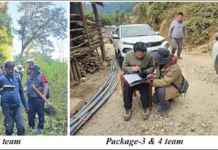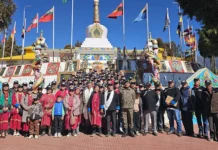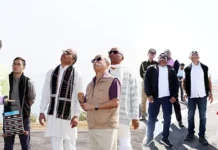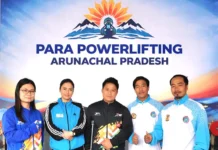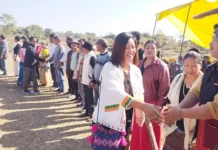Flights Of Fantasy
[ M Panging Pao ]
The World Blood Donor Day (WBDD) was celebrated on 14 June. Internationally, the WBDD is celebrated on 14 June to raise awareness about blood donation, appreciate the lifesaving contributions by blood donors, and inspire more people to donate blood regularly.
The WBDD is celebrated to honour the birthday of Karl Landsteiner, the Austrian physician who discovered the ABO blood group system, earning him the Nobel Prize. The theme for the WBDD this year was ‘Give blood, share life’, highlighting the important role blood donors play in saving lives.
The day is celebrated across the nation and in Arunachal Pradesh also with many blood donation camps conducted in different parts of the state. Many people turned up to donate blood and thousands of blood units were collected across the state. The collected blood would be screened, tested and stored for use by needy patients. Collected blood can be used as whole blood or its different components like RBC, platelets, and plasma.
In recent years, there has been much improvement in blood collection, testing, storage, and component separation facilities in Arunachal with blood banks available at all district hospitals. There is a need to increase the storage and testing capacities, so that more blood can be stored for use by needy patients.
To add to the feeling of wellbeing and appreciation by others, there are many benefits of regular blood donation. Donating blood regularly can improve cardiovascular health and regular blood donors have a lower risk of heart disease. Blood donation reduces blood viscosity, making it easier for the heart to pump and lowering blood pressure. After donating blood, the body works to replenish the lost blood and this process stimulates the production of new blood cells and keeps the body healthy and functioning efficiently. The human body generates the donated blood within 48 hours and persons can donate blood safely after three months of the last donation.
The major challenge is for more people to come out and donate blood voluntarily. There is a general shortage of blood in hospitals and many needy patients do not get blood when critically needed. It is seen that most native people are hesitant to donate blood, considering the act almost as a taboo. We need more awareness programmes at government and community levels to spread the benefits of voluntary blood donation. People must understand that we do not lose anything by giving blood.
As humans, we all are mortal. If our donated blood is used by other people, a part of us (our donated blood) is living in others. What better way of ensuring that a part of us remains alive in other bodies? The best gift one human can give another is blood. Will you also donate blood? (The contributor is retired Group Captain, Indian Air Force)

